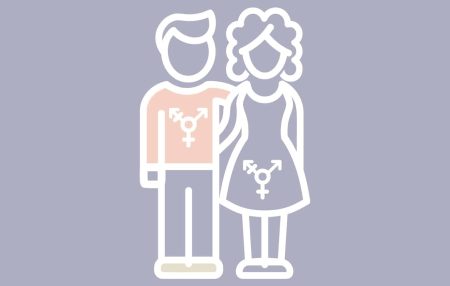16 June 2021
The Human Fertilisation and Embryology Authority (‘HFEA’) published its latest statistics and analysis of fertility treatment trends in the UK last month (May 2021). This coincided with the HFEA’s 30th anniversary following its introduction in 1991. It paints a largely positive picture prior to the Covid-19 pandemic, showing marked increases in fertility treatment success rates over the last 30 years. Overall, since 1991 approximately 1.3 million IVF cycles and more than 260,000 DI cycles have been undertaken in the UK, resulting in the birth of 390,000 babies. This represents a significant achievement.
30th anniversary of the HFEA
The HFEA was the world’s first statutory body designed to regulate and oversee assisted reproduction treatment and research involving human embryos. The HFEA’s remit and work has evolved over the last thirty years and it continues to play a central role in the UK fertility sector. It is responsible for licensing, monitoring and inspecting UK fertility clinics. It also provides free, clear and impartial information about fertility treatments, which it analyses and makes available, including donor information so that donor conceived individuals can learn more about their genetic origins.
The changing fertility sector landscape
Over the last thirty years we have seen rapid growth, development and innovation across the fertility sector. Assisted reproductive technology has evolved and it has become more effective, resulting in more widespread acceptance and usage. In 1991 there were just 6,700 IVF cycles undertaken at fertility clinics in the UK. By 2019, this had increased tenfold to over 69,000 cycles of IVF treatment. As such, fertility treatment now offers tens of thousands of people every year in the UK a number of important fertility preservation and family building options. As genetic screening of embryos and use of genomic technology builds and evolves, it is likely that this will further drive uptake of assisted reproductive technology in the UK and internationally.
Overall, IVF birth rates in 2019 were three times higher than they were in 1991. In 1991, the average birth rate per embryo transfer was just 7%. By 2018, the average birth rate per embryo transfer had increased to 24% in the UK. In 2019, birth rates for patients under 35 were 32% per embryo transferred. Patients aged 35 – 37 and 38 – 39 had a live birth rate per embryo transferred of 6% in 1991, increasing to 25% and 19% respectively in 2019. This increase in live birth rates is encouraging to see. However, age-related fertility decline means that birth rates for patients aged 43 or more using their own eggs remains stubbornly below 5%. As such, there is still much work to be done to deepen our understanding about biological reproductive constraints, particularly in women, and how these can be addressed.
Interestingly, the numbers of IVF cycles have stabilised since 2017, with 53,000 patients undertaking 69,000 fresh and frozen IVF cycles and 5,700 DI cycles in 2019 in the UK. Of these fertility treatments, 86% involved the use of patient eggs and partner sperm in 2019. Frozen embryo transfers increased by 86% from 2014 – 2019. In 1991 frozen embryo transfers constituted just 10% of all IVF cycles, compared to 41% in 2019. Given the ongoing impact of the Covid-19 pandemic, it is likely that this will further drive demand for frozen embryo transfers as more people seek to preserve and maximise their fertility and create some breathing space by creating and freezing embryos for transfer at a future date.
Over the last thirty years, we have seen an increase in the use of donor eggs and sperm in fertility treatment in the UK. In 2006, there were 1,171 cycles of IVF treatments using patient eggs and donor sperm, increasing to 5,368 in 2019. IVF treatment using double donation (donor eggs with donor sperm) increased 50-fold from 27 cycles in 1991 to 1,1375 cycles in 2019. IVF treatment using donor eggs and partner sperm increased 22-fold from 134 cycles in 1991 to 3,058 cycles in 2019. Notably, however, only 17% of patients aged 40 or more used donor eggs in 2019 to increase their chances of a successful live birth reflecting the fact that it remains a difficult patient choice.
Trends in same-sex female partners undergoing fertility treatment, along with single patients have also increased at UK fertility clinics. In 2009, 489 cycles of treatment (1% of all cycles) were undertaken by same-sex female partners, compared with 2,435 cycles of treatment (4% of all cycles) in 2019. Additionally, single patients undertook 565 cycles in 2009 (1% of all treatment), increasing to 1,470 cycles in 2019 (2% of all cycles).
We have also seen increasing take up of egg freezing in the UK following improvements in egg freezing technology. As such, there has been a tenfold increase in egg freezing over the last ten years from around 230 cycles in 2009 to 2,400 cycles in 2019. Whilst this does not guarantee a successful live birth, it does provide a further fertility preservation option for women seeking later-life parenthood, those diagnosed with cancer and transgender patients. Given the continuing impact of the Covid-19 pandemic and trends in later-life parenthood, it is likely that we will continue to see further increases in egg freezing cycles looking ahead.
Trends in later-life parenthood are visible from ONS statistics which show that over the last twenty years the average age at which women have children has increased by 2.3 years to 30.7 in 2019. There has also been a gradual correlating shift in the ages of people undergoing fertility treatment in the UK. In 1991, the majority of IVF cycles (58%) were undertaken by patients aged under 35. In 2019, the number of patients aged under 35 had fallen to 40%. Additionally, the proportion of IVF cycles undertaken by patients age 40 and over has increased from 10% (689) cycles in 1991 to 21% (14,761 cycles) in 2019.
Due to the success of the single embryo transfer policy introduced by the HFEA in 2007, the multiple birth rate in 2019 was just 6% compared with 28% in the 1990s. In doing so, this reduced medical risks for pregnant women and their unborn child arising from fertility treatment.
Specialist legal advice
Notwithstanding this positive picture, the ongoing global Covid-19 pandemic has brought about unprecedented levels of change and it has never been more important to do what we can to proactively manage our health, fertility, personal and family arrangements. The Covid-19 pandemic adds further layers of complexity to family building, fertility treatment and a wide range of questions about family life. Should I delay starting a family to see what happens to my job? What are my options for having a baby if my relationship fails due to a change in circumstances? Should I take the next step with my partner in these uncertain times and try for a baby? Should I think about importing my frozen eggs, sperm or embryos into the UK for use in fertility treatment? What will happen to my family building wishes and frozen embryos if my partner dies unexpectedly? Should I think about genetically screening my embryos? Should I freeze my eggs? What are my options for building a family through surrogacy? Should I conceive with a known donor or donated gametes from a donor bank? What are my options if I fall into dispute about the care and upbringing of my child with my donor, co-parent, surrogate or former partner?
Specialist fertility and family law advice helps navigate evolving fertility treatment and family building outcomes. It can create a bespoke family building legal and practical action plan to help preserve and maximise individual fertility, understand options and make better informed decisions about conception, family creation, biological identity and legacy and legal outcomes if life does not go to plan. It also helps effectively navigate many complex fertility and family law issues, including:
- Legal issues and options where women and men face impaired fertility or lost fertility due to cancer diagnosis or other illness, unsuccessful conception attempts, change in gender, change in personal circumstances, delayed parenthood (e.g. fertility preservation and maximisation, management of existing personal relationships and implications of using donor gametes and fertility treatment).
- Legal issues and options associated with assisted conception involving a known donor, co-parent or surrogate (e.g. legal parentage, parental rights, financial responsibility and dispute mitigation).
- Difficulties with storage and use of frozen eggs, sperm and embryos in fertility treatment in the UK (e.g. problems with consent and expiry of storage terms).
- Issues associated with import of frozen gametes and embryos into the UK for use in fertility treatment and surrogacy (e.g. due to anonymous and commercially obtained gametes and embryos which engage UK public policy restrictions).
- Issues concerning the export of frozen gametes and embryos abroad for use in fertility treatment and surrogacy (e.g. consent and storage term difficulties).
- Unexpected death of a loved-one and related issues associated with posthumous storage and use of eggs, sperm and embryos in fertility treatment (e.g. due to an accident or illness).
- Legal parentage issues and disputes (e.g. concerning DNA testing, direct-to-consumer genetic testing, rectification of birth certificate, declaration of parentage, step-parent adoption, recognition of overseas adoption, parental order).
- Care and upbringing of children following a dispute with an ex-partner, parent, donor or surrogate (e.g. contact, residence, financial arrangements, parental responsibility, specific issue or prohibited steps).




